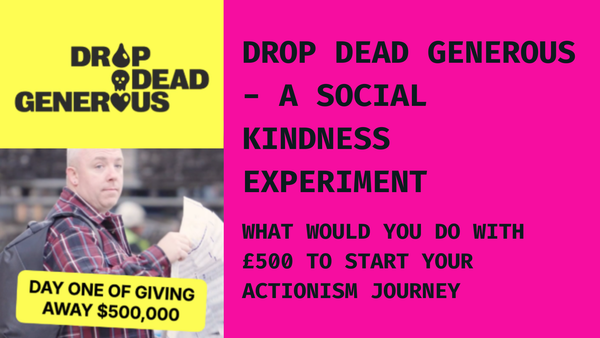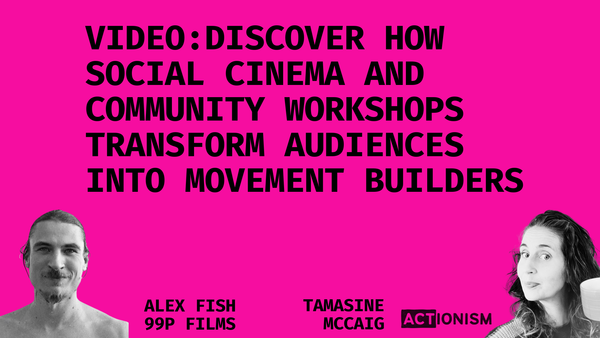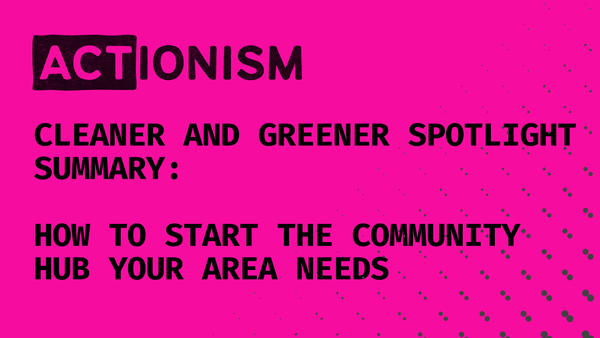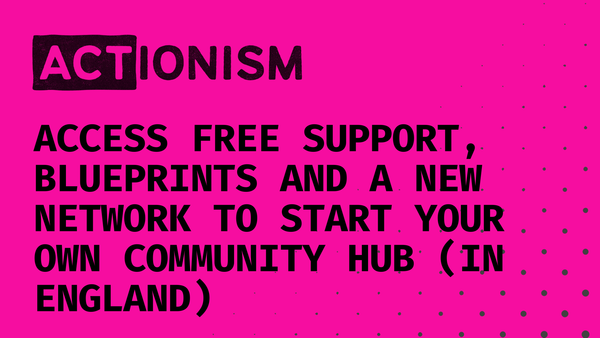Politics Needs to Open Up to Citizen Collectives
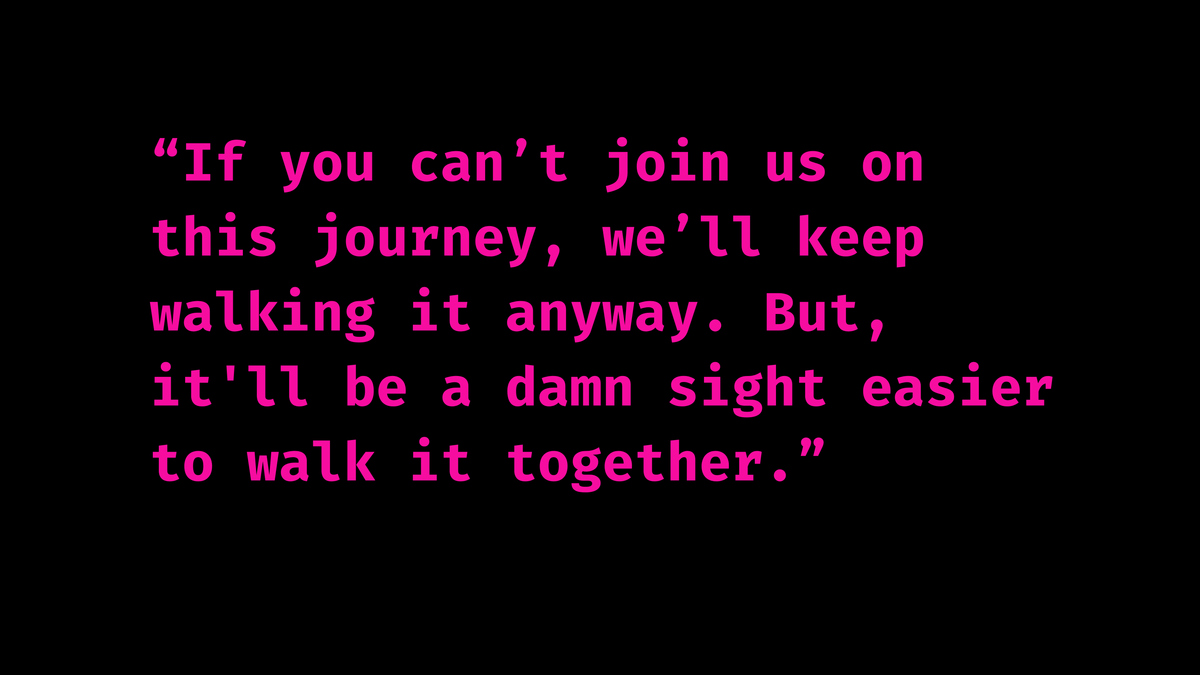
All across the world, citizens are coming together, not to campaign, not to protest, but to build. 'WE' are demonstrating alternative futures, from a space of possibility.
Citizen collectives are stepping up to deliver what governments and markets are failing to provide: care, repair, food, energy, housing, meaning, connection.
This isn’t charity work. It’s a structural workaround. We're hacking our way into a new story.
As Heather Davies pointed out in the blog: Comparing three paths to Citizen Participation: volunteering, activism and ACTionism what's happening isn’t volunteering in the traditional sense. It’s not about filling gaps left by the state with unpaid labour. And it’s not activism in a model of opposition. Both of these are necessary, but this is something different.
It’s ACTionism: the art of finding the others, and taking collective action. It's grounded, participatory, collective, and generative. A whole bunch of citizens are not asking for permission. 'WE' are just getting on with the work.
If you look and listen, you can find this everywhere.
So my question is: When will politics wake up and meet this moment?
The Rise of Citizen Collectives isn’t a fad.
It’s a Symptom. And it’s a point Hans Stegeman recently made powerfully in this post.
Across Europe, people are organizing - from energy to food, from care to housing. Not to “do good.” Not as volunteers. But because formal institutions are failing to deliver.
He framed it clearly: citizen collectives are not a trend, they're a necessity, born from gaps our institutions are no longer filling. His call? For politicians and policymakers to create the conditions for collectives to thrive, not just praise them after the fact.
I would go even further. I think there is much politics could learn from this emerging power. Politics should build the conditions, open up, and share the power but, I also think it should embrace the collective message and the togetherness. There is something deep to learn here, about how we come together and halt the division.
What Politics needs to do now
Here’s what I see politics needing to do, urgently, if it wants to meet this energy, not stifle it:
- Listen - not to reply, not to win points, but to actually understand what’s emerging on the ground.
- Open up - be human, be vulnerable, be in the room without an agenda. Our systems are collapsing, we feel it, and so do you.
- Learn from our approach - because citizen collectives aren’t waiting for permission. We’re already doing what governments talk about: co-creation, localism, care, resilience, transformation, belonging.
- Share power - not just symbolically, not just in policy, but in real structures, decision-making, resources.
But more than all that, I believe politics needs to learn from the way we're creating a culture of togetherness. Because what’s emerging through citizen collectives isn’t just new services, it’s a new way of being political. It’s relational. It's grounded. It’s less about messaging and more about meaning.
If we want to build a political culture that works for this century, then politics must stop trying to “represent”, it has to start showing up as part of the collective, and it must work to halt the division. That means acting with, not speaking for.
A Note to Politicians: Stop trying to win the game we’re trying to leave
Take Zack Polanski, the new Green Party leader in the UK. He's gaining momentum, and I agree with a lot of his policies. He’s clearly trying to do things differently. He’s been out there, speaking in communities, talking about how he feels. That matters.
But then, he turns that connection into a political message, “talking to anyone who wants to take the fight to Reform”, framing opponents.
And I get it. The system rewards that kind of oppositional framing. But when we do that, we shut down the space we just opened. We reinforce the very dynamics we need to move beyond.
If we keep using the old tools to build something new, we’ll just recreate the same system.
What’s needed now isn’t just better messaging.
It’s a reimagining of how power is held, shared, and practised.
A Vision: Returning Collective Power to Citizens
I believe our politics needs to be reimagined entirely, in ways that return collective power to citizens.
Take Our House, for example - a collective of participatory democracy practitioners and community organisers who believe in a people‑powered future. They’re building democracy differently, creating an inclusive, creative system that works for everyone.
Starting locally, we are forming a distributed network of local leaders for political systems change, embedded and connected in our communities, and advocating for their People’s Charter through thousands of conversations across England, Northern Ireland, Scotland and Wales.
Then there’s Jon Alexander, whose framing of the “consumer story” as a dominant but flawed narrative is deeply compelling. He argues that the issues aren’t only individual or oppositional, they’re systemic: extraction, passivity, being treated as receivers rather than as creators. This framing isn't forming opposition or 'others' it's saying that the system is the problem. And crucially, he reminds us that what’s needed is not some heroic leader, but us all.
Why the Key to Fixing Everything is All of Us
Also: heres' a piece about the recent Citizens’ Forum on MPs’ Pay and Funding from Olivia, that demonstrates this in practice. Ordinary people, across economic status, background, geography, deliberated complex questions: what an MP’s pay should reflect, how parliamentary work should be funded. What emerged was not polarisation, but insight.
This togetherness matters because many political actors still don’t meet people where they are. They speak at people rather than with them. They forget to listen and head straight into policy. At this moment, I’m finding it hard to connect with any politician. Yet I find it incredibly easy to connect with other citizens.
Building Collective Agency through Listening and Shared Feeling: Lessons from ACTionism
If leaders began with real listening, acknowledging what people feel, not dismissing it, sharing their real emotions and opening up, they’d lay the groundwork for genuine collective agency. And if, on top of that, they celebrated our collective actions, no matter how small, they could help 'US' rewrite our story. Not one of division, but of shared power, interconnection, and possibility.
We’re experiencing this shift firsthand at ACTionism. We’re learning to organise not just around actions, but around deep listening and sharing our feelings - grief, hope, fear, love. This emotional openness is becoming the foundation for how we build collective power and trust. It’s through this blend of heartfelt connection and small, consistent actions that we’re starting to unlock true collective agency, and we believe this holds lessons far beyond our own community.
So, this isn't just about opening up to a rising power, it's deeper, it's about listening to what that power is learning, and leaning into it.
Why this Matters to me Personally
At ACTionism and the Re-Action Collective, we’ve seen firsthand how this shift happens. We’ve been part of the quiet building, from listening circles in the forest to new citizen projects emerging within days.
We’ve seen how sharing feelings + taking small actions in community creates a kind of momentum that politics can’t replicate. It’s relational. It’s real. And honestly? I find it easier to connect with other citizens than with any political leader right now.
Not because I’ve given up on politics.
But because they feel so far away, still speaking at people instead of with them.
The Invitation
Come and meet us where we are, not on podiums or in campaign offices, but in the forests, the sheds, the kitchens, on the streets, and in community halls.
Join us on this journey, there’s so much for all of us to learn.
If you can’t join us, we’ll keep walking it anyway. But it’ll be a damn sight easier to walk it together.

